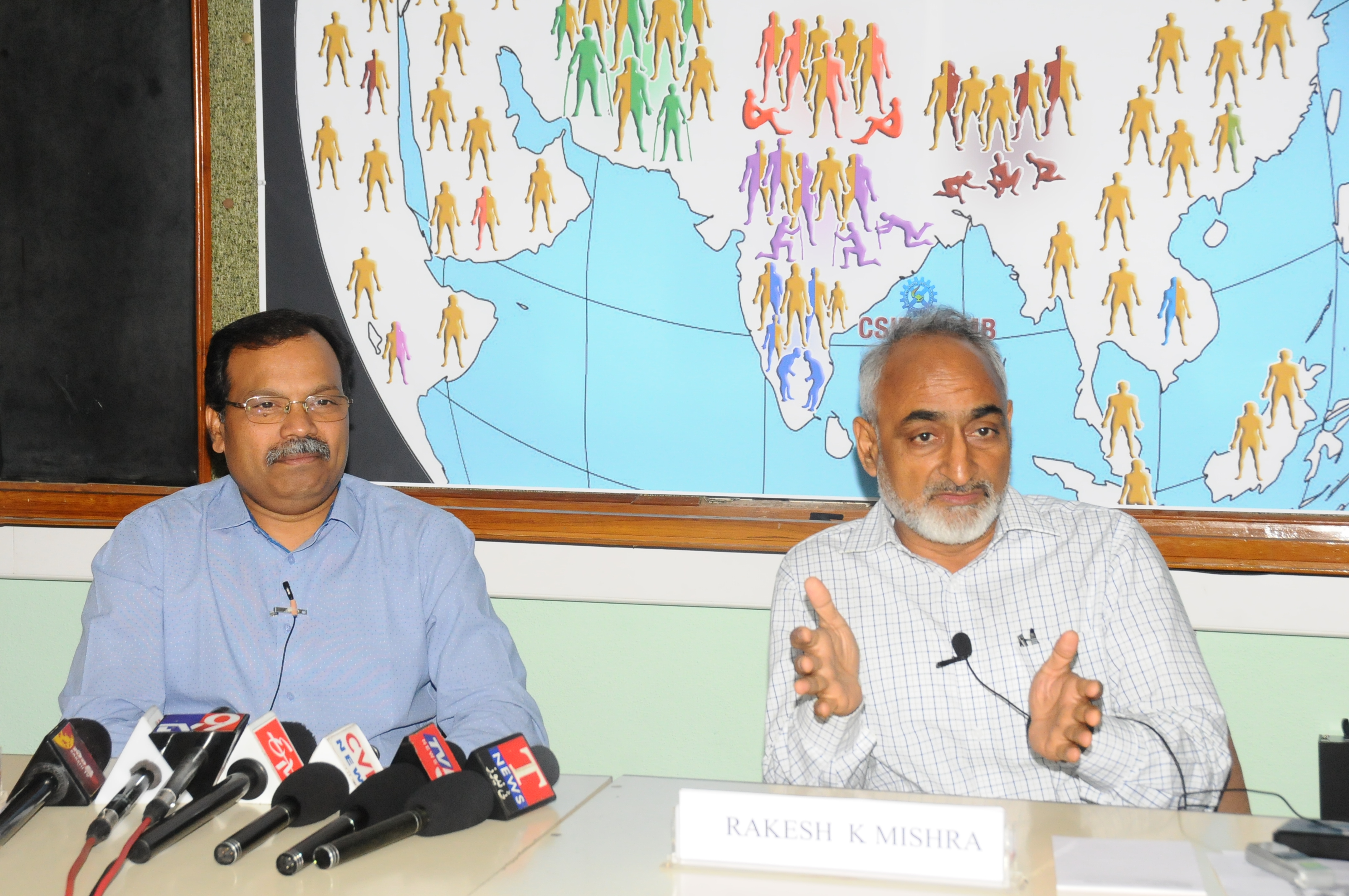PIB Headquarters
MOST SOUTH ASIAN GROUPS ARE VULNERABLE FOR POPULATION-SPECIFIC DISEASES
- Endogamy results in Recessive genetic diseases
- CCMB led the New Study : Dr.Rakesh K Mishra, Director of Centre for Cellular and Molecular Biology (CCMB), Hyderabad
Posted On:
18 JUL 2017 6:48PM by PIB Hyderabad

In a New Study published online on 17th July 2017 in ‘Nature Genetics’, scientists described how the 1.5 billion people of South Asia are particularly vulnerable to rare genetic diseases. While addressing the Media at CCMB in Hyderabad today Dr. Rakesh K Mishra, Director of CSIR- Centre for Cellular and Molecular Biology (CCMB), Hyderabad, highlighted how this effort led by CSIR- CCMB is enabling a paradigm shift, facilitating and accelerating predictive and personalized medicine. Dr. Rakesh Mishra said that he is excited about the potential of future research to capitalize on the opportunity highlighted by this study to improve health in individual communities in South Asia. Several research institutions contributed for the research.
This insight highlights an extraordinary opportunity to identify mutations that are responsible for population-specific disease and to test for and decrease the burden of recessive genetic diseases in South Asia. Each person in the world – not only in South Asia – carries several mutations that, if they occurred in two copies, would leads to serious ‘recessive diseases’. In South Asia, “founder events” in which small numbers of ancestors carrying such mutations gave rise to large numbers of descendants – combined with endogamy leading to marriage only within groups – causes these mutations to often be carried in two copies, leading to a far higher rate of populations-specific diseases than elsewhere in the world. South Asia is inhabited by about 5,000 anthropologically well-defined populations, many of which are endogamous (marrying within a population) communities with significant barriers to gene flow due to sociological, linguistic and cultural factors that restrict inter-population marriage. Several diseases that are specific to populations of South Asia have been identified in the past. However, the genetic causes for the vast majority of population-specific disease are largely unknown.
The new study was led by co-senior authors Scientist Dr. Kumarasamy Thangaraj of CSIR-Centre for Cellular and Molecular Biology (CCMB) (Hyderabad, India) and Dr. David Reich of Harvard Medical School and the Broad Institute) Boston and Cambridge, USA), in collaboration with colleagues from many other institutes. It has identified that about one third of populations in South Asia have had strong founder events/population bottlenecks, which are responsible for a high rate of population-specific disease in South Asia. Dr. Thangaraj said that We have analyzed samples from more than 2,800 individuals from over 275 distinct South Asian populations who belongs to various social and linguistic groups from India, Pakistan, Nepal, Sri Lanka, and Bangladesh using about 600,000 genome-wide markers. The authors devised an algorithm to quantify the measure of the founder events in each group based on Identity-by-Descent (IBD) segments, large stretches of DNA shared from a common founder in the last approximately one hundred generations.
Dr. Reich said that they found that 81 out of 263 unique South Asian groups, including 14 groups with estimated census sizes of over a million, have a strong founder event than the one that occurred in both Finns and Ashkenazi Jews in the West – these are founder groups known to have large numbers of recessive diseases. He further said that this source of risk for recessive diseases is very different from that due to marriages among close relatives (consanguineous marriages), which is also a major cause of recessive disease in South Asia. As an example of founder event disease gene mapping in South Asia, the authors highlighted the case of the Vysya, who have a census size of more than 3 million and a founder event that they estimated to be about 1.2-fold stronger than that in the Finnish population. The Vysya have an approximately 100-fold higher rate of butyrylcholinesterase deficiency than other groups. In order to demonstrate how a new recessive disease in a founder event group could be mapped, the authors analysed 6 patients from southern India who had Progressive Pseudorheumatoid Dysplasia (PPD), a disease known to be caused by mutations in the WISP3 gene. Out of the 6 individuals with a mutation, 5 were from non-consanguineous marriages.
Dr. Thangaraj said that our study provides opportunity for discovering population-specific disease causing genes in communities known to have strong founder events. Mapping of mutations that are responsible for population-specific disease would help in developing strategies for diagnosis, counseling, management and modifying the clinical course of these disorders and to reduce the disease burden among South Asians. This study motivates researchers, health officials and policy makers in South Asia to study the genetic features specific to each of these groups and translate this into actionable medical research. An example of the power of a new approach was given by Dor Yeshorim, a community genetic testing program among Orthodox Ashkenazi Jews, which screens students for common recessive disease causing mutations.
***
(Release ID: 1496043)